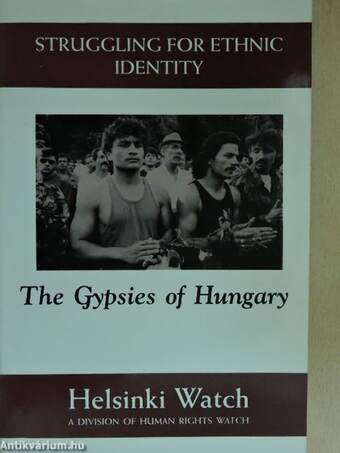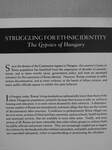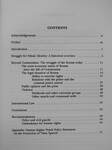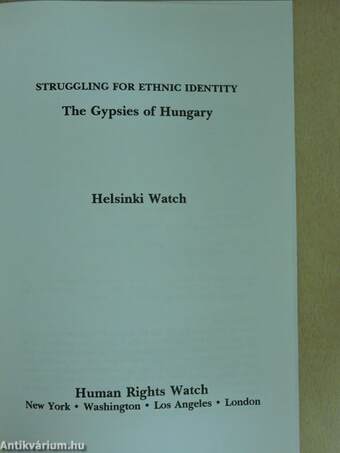1.066.801
kiadvánnyal nyújtjuk Magyarország legnagyobb antikvár könyv-kínálatát

VISSZA
A TETEJÉRE
JAVASLATOKÉszre-
vételek
Struggling for Ethnic Identity - The Gypsies of Hungary
Helsinki Watch
| Kiadó: | Human Rights Watch |
|---|---|
| Kiadás helye: | New York |
| Kiadás éve: | |
| Kötés típusa: | Ragasztott papírkötés |
| Oldalszám: | 72 oldal |
| Sorozatcím: | |
| Kötetszám: | |
| Nyelv: | Angol |
| Méret: | 23 cm x 15 cm |
| ISBN: | 1-56432-112-6 |
naponta értesítjük a beérkező friss
kiadványokról
naponta értesítjük a beérkező friss
kiadványokról
Fülszöveg
STRUGGLING FOR ETHNIC IDENTITY The Qypsies of Hungary
Since the demise of the Communist regime in Hungary, the country's Gypsy or Rdma population has benefited from the suspension of decades of assimila-tionist, and at times overtly racist, government policy and from an increased tolerance for the expression of Roma identity. However, Romas continue to suffer serious discrimination, and at times violence, at the hands of fellow citizens, and many public officials appear to exhibit the same behavior.
In Hungary today, Romas' living standards are substantially lower than those of the ethnic Hungarian population, primarily because their access to Jobs, as well as to housing and education, is to some extent dictated by their ethnicity. A disproportionate number of Romas are unemployed, and many allege that they are the victims of discriminatory labor practices. Conditions in predominately Roma villages can be even worse, as many of them lack basic amenities, such as schools, health... Tovább
Fülszöveg
STRUGGLING FOR ETHNIC IDENTITY The Qypsies of Hungary
Since the demise of the Communist regime in Hungary, the country's Gypsy or Rdma population has benefited from the suspension of decades of assimila-tionist, and at times overtly racist, government policy and from an increased tolerance for the expression of Roma identity. However, Romas continue to suffer serious discrimination, and at times violence, at the hands of fellow citizens, and many public officials appear to exhibit the same behavior.
In Hungary today, Romas' living standards are substantially lower than those of the ethnic Hungarian population, primarily because their access to Jobs, as well as to housing and education, is to some extent dictated by their ethnicity. A disproportionate number of Romas are unemployed, and many allege that they are the victims of discriminatory labor practices. Conditions in predominately Roma villages can be even worse, as many of them lack basic amenities, such as schools, health facilities and municipal services, that are available in most other areas. Finally, and most serious of all, Romas are more vulnerable than other ethnic groups to violence both by public officials and private citizens. They are increasingly singled out as targets for violence by skinheads and other militant nationalists, and public authorities have not responded adequately, either in apprehending or prosecuting the offenders. Vissza
Témakörök
- Szociológia > Társadalmi csoportok > Kisebbségek > Cigányság
- Idegennyelv > Idegennyelvű könyvek > Angol > Szociológia > Társadalmi csoportok > Kisebbségek > Cigányság
- Jogtudomány > Jogi ismeretek > Emberi és polgári jog
- Szociológia > Szociálpolitika > Általában
- Szociológia > Tanulmányok, esszék
- Idegennyelv > Idegennyelvű könyvek > Angol > Szociológia > Tanulmányok, esszék
- Idegennyelv > Idegennyelvű könyvek > Angol > Szociológia > Szociálpolitika > Egyéb
- Idegennyelv > Idegennyelvű könyvek > Angol > Jogtudomány > Egyéb
Megvásárolható példányok
Nincs megvásárolható példány
A könyv összes megrendelhető példánya elfogyott. Ha kívánja, előjegyezheti a könyvet, és amint a könyv egy újabb példánya elérhető lesz, értesítjük.







